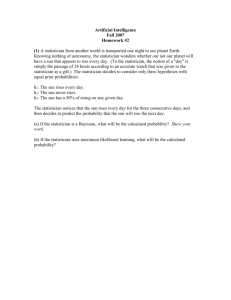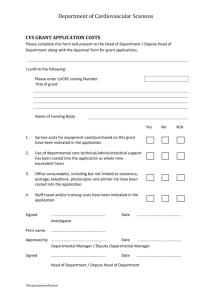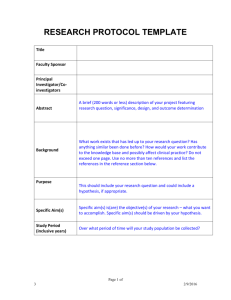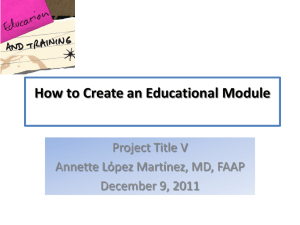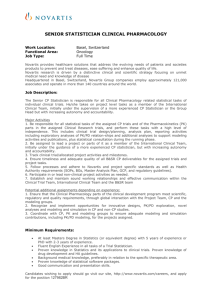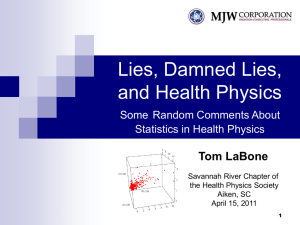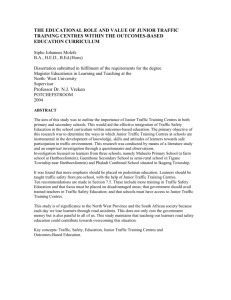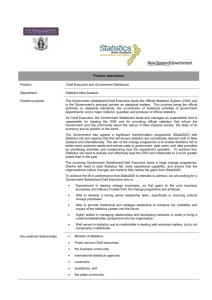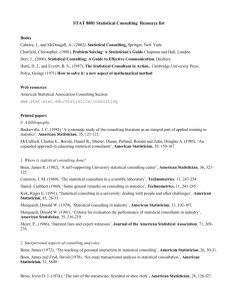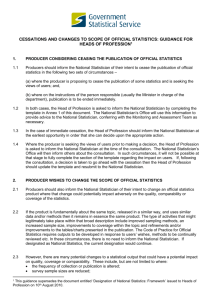Statistical Collaboration Statistical input into research is vital to
advertisement
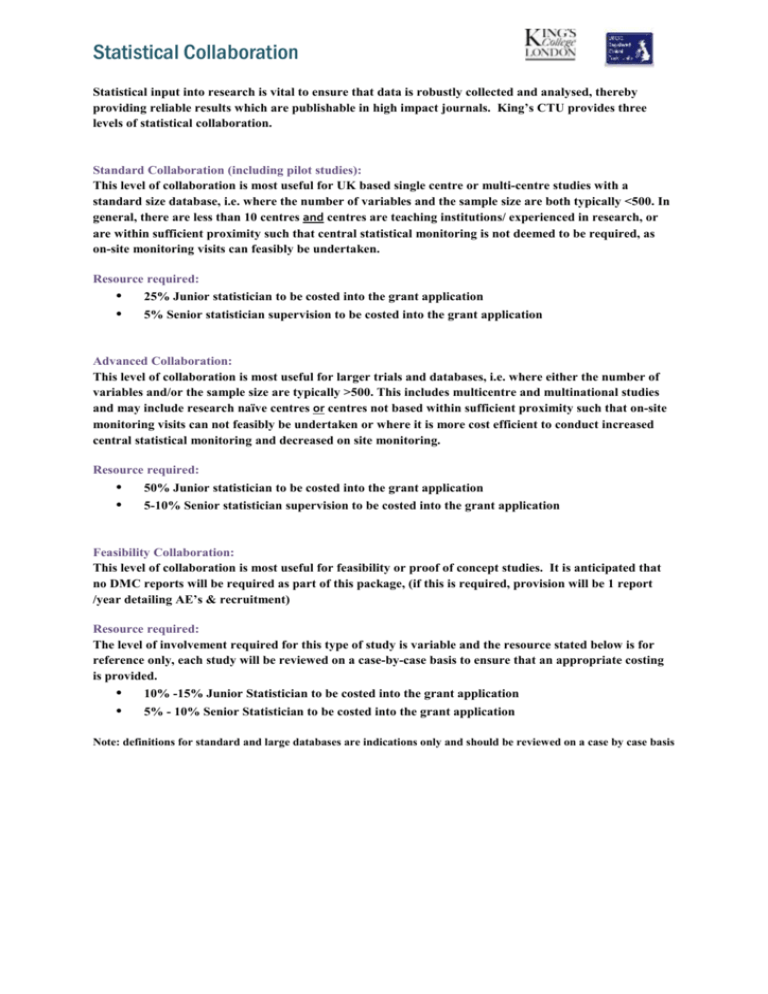
Statistical Collaboration Statistical input into research is vital to ensure that data is robustly collected and analysed, thereby providing reliable results which are publishable in high impact journals. King’s CTU provides three levels of statistical collaboration. Standard Collaboration (including pilot studies): This level of collaboration is most useful for UK based single centre or multi-centre studies with a standard size database, i.e. where the number of variables and the sample size are both typically <500. In general, there are less than 10 centres and centres are teaching institutions/ experienced in research, or are within sufficient proximity such that central statistical monitoring is not deemed to be required, as on-site monitoring visits can feasibly be undertaken. Resource required: • • 25% Junior statistician to be costed into the grant application 5% Senior statistician supervision to be costed into the grant application Advanced Collaboration: This level of collaboration is most useful for larger trials and databases, i.e. where either the number of variables and/or the sample size are typically >500. This includes multicentre and multinational studies and may include research naïve centres or centres not based within sufficient proximity such that on-site monitoring visits can not feasibly be undertaken or where it is more cost efficient to conduct increased central statistical monitoring and decreased on site monitoring. Resource required: • • 50% Junior statistician to be costed into the grant application 5-10% Senior statistician supervision to be costed into the grant application Feasibility Collaboration: This level of collaboration is most useful for feasibility or proof of concept studies. It is anticipated that no DMC reports will be required as part of this package, (if this is required, provision will be 1 report /year detailing AE’s & recruitment) Resource required: The level of involvement required for this type of study is variable and the resource stated below is for reference only, each study will be reviewed on a case-by-case basis to ensure that an appropriate costing is provided. • • 10% -15% Junior Statistician to be costed into the grant application 5% - 10% Senior Statistician to be costed into the grant application Note: definitions for standard and large databases are indications only and should be reviewed on a case by case basis Statistical Collaboration Details of the levels of collaboration: Standard Advanced Feasibility Develop the design for a clinical trial or other study including assisting in the preparation of the study protocol ✓ ✓ ✓ Respond to reviewer’s comments ✓ ✓ ✓ Prepare sample size calculation ✓ ✓ (optional) Advise on randomisation method ✓ ✓ Advise on the preparation of case report forms (CRFs) ✓ ✓ ✓ Prepare DMEC/TSC reports (~1-2/Year) ✓ ✓ (optional) Provide central statistical monitoring (requiring additional data exports approx. every 1-2 months) ✓ Write the statistical analysis plan in collaboration with the CI ✓ Attend a proportion of TMG meetings ✓ (optional) ✓ Attend regular TMG meetings Prepare code for primary analysis (primary publication) ✓ ✓ ✓ Prepare code for one secondary publication (e.g. mediation analysis) ✓ Contribution to production of reports to funders (creating CONSORT & Recruitment charts) ✓ Assume standard size dataset with moderate number of secondary outcomes ✓ May analyse large dataset, and include mediation and/or moderation analyses Conduct primary analysis for primary paper (Inc. primary analysis code checks) ✓ ✓ Contribute to writing of one secondary paper ✓ (descriptive only) ✓ Conduct secondary analysis for one secondary paper Prepare statistical report and contribute to writing of the primary paper ✓ ✓ ✓ ✓ ✓ Advise on the development of study to a definitive trial To request a formal quote (including Standard and Advanced collaborations) please complete support request form online www.ctu.co.uk ✓
